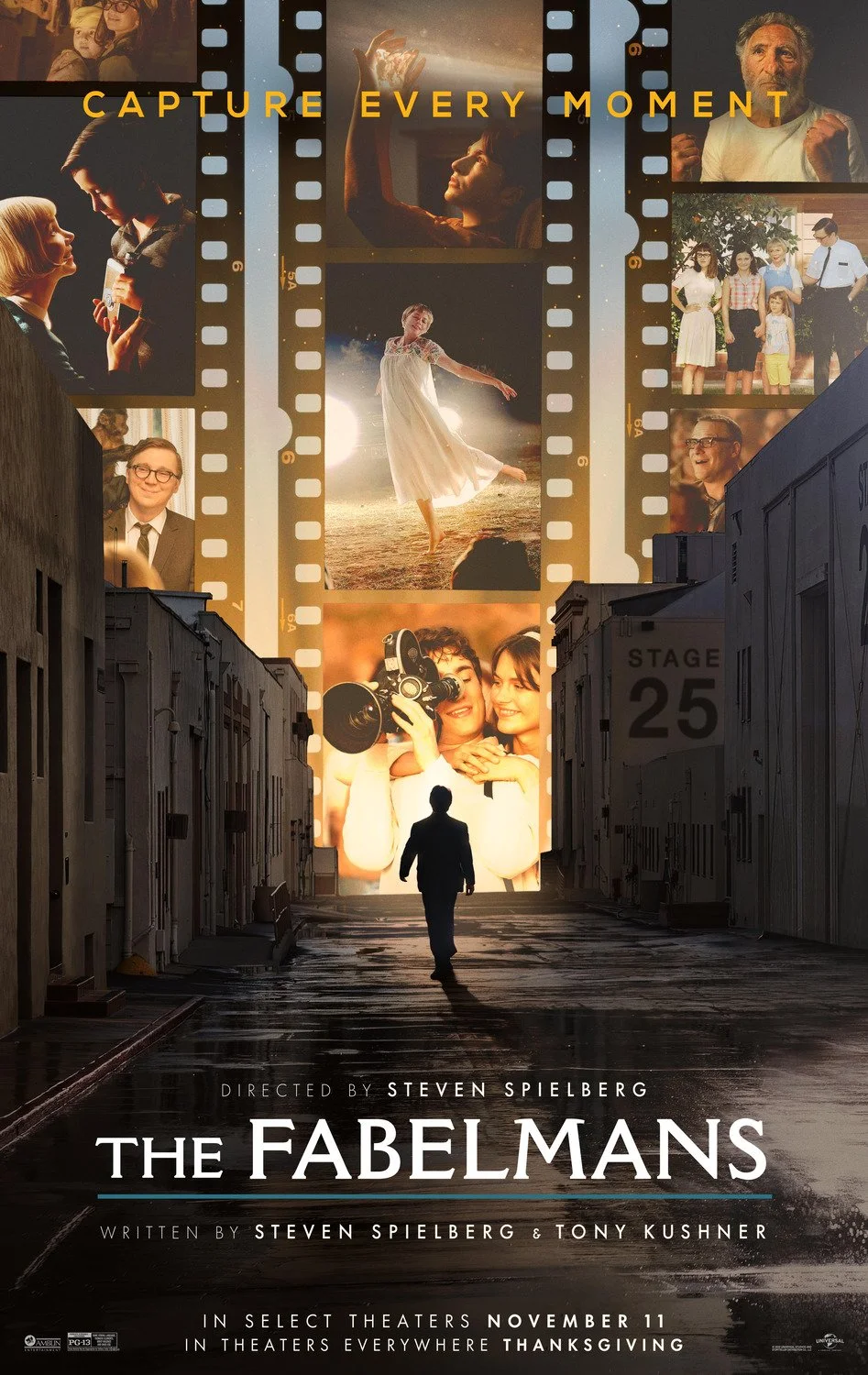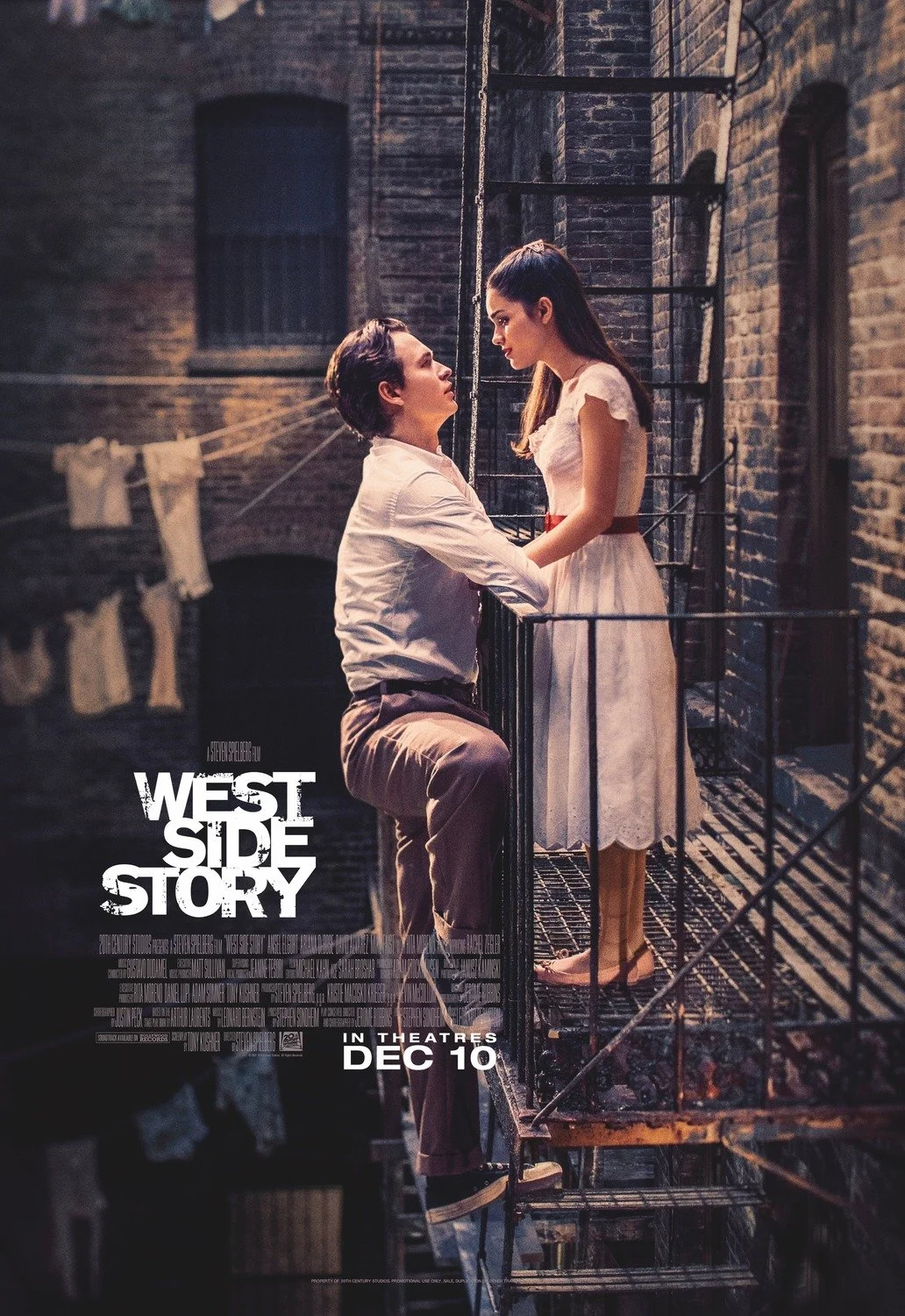Movie Review : The Fabelmans (2022)
Last year, I had triumphantly declared that Steven Spielberg had advanced. That he'd finally let go of the idea of being relevant and started doing projects that appeal to absolutely no one, except himself. So far, time and further projects are proving me right. If you asked random cinephiles twelve months ago whether they were interested in a biopic on Steven Spielberg's life that would not include any important film he's ever done (it ends before his career even starts), you would've gotten laughed out of the room.
But that film exists now. It's called The Fabelmans and it's kind of cute. When you're Steve Spielberg, you can get away with doing whatever the hell you want and people will pay to see it.
Sam Fabelman (Gabriel LaBelle) is an imaginative and artistically gifted kid who gets traumatized after watching a train collide with a car in Cecil B. DeMille's The Greatest Show on Earth. His mom (the great Michelle Williams) had the idea of buying a camera, so that he can reproduce the train crash on his toy train at home and record it, so that he can manage his own fear. Young Sam found his calling right there and then, which will help him dealing with the slow collapse of his parents' couple.
Loving something more than life itself
The Fabelmans is, at heart, an inspirational coming-of-age meant to comfort and motivate any theoretical young artist who would happen to watch it. I'd argue this would appeal to any artistic-minded people, but solely through the awe-inspiring monologue of Uncle Boris (Judd Hirsch), a character who doesn't have any point whatsoever in The Fabelmans, except for delivering that killer inspirational talk. If you don't want to sit through the entire movie, it is available on YouTube for now.
There are so many great details about this scene. But my favourite is that I believe uncle Boris is a manifestation of present day Steven Spielberg briefing his younger self about what was going to happen. He's the only character in the movie who appears under supernatural circumstances (a sleepwalking Mitzi Fabelman gets a phone call from her dead mom warning her about a strange man) and Spielberg himself claimed he’d taken liberties with the character because he didn't know his real uncle really well.
What uncle Boris tells Sam also stands up as a genuine motivational speech. Spielberg explains to his younger self that the difference between his mother (who was a great pianist) and him is that she was afraid of committing to what she truly loved. That having a calling is stronger than certain moral duties we were raised not to question, like family or financial responsibility. That when you have this calling, your only responsibility is to follow it as far as you can. If this doesn’t give you courage, I don’t know what can.
The contemporary purpose of storytelling
Another sneaky-interesting moment in The Fabelmans is the back-and-forth between Sam and his dad (Paul Dano) about the purpose of spending all this time making movies. As The Fabelmans goes along and Sam gets older, his father gets increasingly irritated at his son's passion for moviemaking, claiming he needs to eventually find a real job to invest himself in and become a productive part of society. Fortunately, this too common and destructive discourse is not only counterbalanced by uncle Boris.
Spielberg is a much more clever and thorough storyteller than that.
There's this great scene at the high school prom where Sam presents a Triumph of the Will-like documentary film he shot earlier that year during Ditch Day (an American tradition I wasn't aware of) , featuring his classmate and assigned bully Logan (Sam Rechner). Sam makes him look like a God in front of the entire school, moving a confused Logan to tears and asserting a power over him that is greater than the threat of any physical harm. Logan will always be subjected to how Sam sees him in other people's eyes.
To be completely honest, I think Spielberg is arguing his point throughout the entire movie. Whether it's through Sam's movies or other people's consumption of different forms of storytelling, what he does is always framed within the confines of a mean of expression. It's how we reinterpret reality in our own words or even transcend it if need be. Sam's worries about his son's "hobby" never feel reasonable or based on anything because they are constantly disproven by The Fabelmans.
I guess it was Spielberg's way of posthumously telling his old man to suck it, which is a quite relatable thing to do.
*
The Fabelmans will probably never be presented at any Steven Spielberg's retrospective. It's too quirky and personal to compete with classic movies like E.T, Schindler's List, Saving Private Ryan and whatnot. But it’s, by far, not the worst movie Steven Spielberg ever made (this award would go to The Post or War Horse) and it will forever have its small place in cinema as a sweet motivational call-to-arms for young and unassuming creatives. This is a great compromise film to watch with two incompatible audiences.






